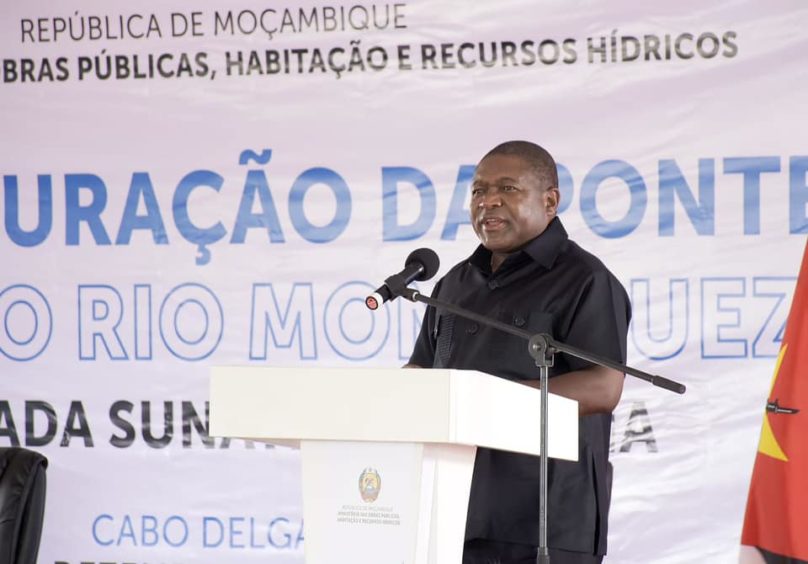
Foreign military support is growing in Mozambique’s northern Cabo Delgado Province following the attack on Palma but it is clear that the LNG plans have suffered a major setback.
The Times has reported that three members of the SAS have deployed to the area in an effort to find Philip Mawer.
He had been working for RA International and has reportedly been missing since the attack on the Amarula Lodge on March 26-27.
Mawer was said to have been in the convoy of vehicles that attempted to flee the hotel but was ambushed. Of the 17 or so cars in the convoy, only seven reached their destination. The Mozambique authorities said, on March 28, that at least seven people had been killed in the ambush.
The Times said the SAS team had been in Nairobi, where they had been training. The report said Mawer was the only UK citizen still missing.
Mozambique’s security forces have entered Palma but local reports say the town is still not secure. Journalists visiting the town on March 30 reported being fired upon.
Military contractors
Dyck Advisory Group (DAG) was accused of war crimes earlier this year but the South African military contractors have proved invaluable in rescuing people.
DAG’s Lionel Dyck, speaking to the BBC, said his team were using helicopters to fight the terrorists and to pick up civilians.
The rainy season has recently ended, Dyck noted, and the attackers were well prepared and armed.
“They’re not running away as much as usual,” he said. The army “has not been present in this fight until a couple days ago … I’ve not noticed them”, he said.
DAG is operating under a contract with the Mozambique police, which is due to end on April 6.
Total has “done nothing. They’ve got no emergency plan. When we required fuel in a hurry they wouldn’t give us fuel … their policy is that they don’t give support to any form of armed security outside their camp. There is no evacuation plan,” Dyck said.
Islamic State (IS) has claimed responsibility for the attack and said it had killed more than 55 people, including foreigners. The extent to which IS actually has operational control over the insurgency in Mozambique is unclear.
Portugal confirmed on March 30 that it would send troops to Mozambique to provide training for local forces. A small group of US trainers arrived in the country in early March.
According to the United Nations, 3,361 people fled Palma for Nangade, Mueda, Montepuez and Pemba, but the true number of those displaced is thought to be much higher. Around 110,000 people are thought to have lived in the Palma district.
LNG plans
The Islamist attack began on March 24, the same day Total had announced a new security deal with the government and plans to return to work. The French company has put these plans on hold.
Total suspended work in January following a number of attacks close to its Afungi LNG Park facility, where it is building two trains. It is not yet clear how long a delay may be. The French company had planned to begin its LNG plant in 2024.
The French company evacuated its staff on the weekend, chartering the Sea Star 1 to transport workers to Pemba.
While it is unlikely Total will abandon Mozambique LNG, the prospects for ExxonMobil to go ahead with its larger Rovuma LNG appear more challenged.
Mozambique-watcher Joseph Hanlon said the country’s government had been “dazzled by the gas” and that poverty and inequality were on the rise.
The new promised security deal was Mozambique’s last roll of the dice, Hanlon said.
“The whole gas gamble was bet on a promise of security, and [Mozambique President Filipe] Nyusi – and Mozambique – lost the bet,” he continued. “It looks increasingly like Eni’s floating platform will be the only gas production in Mozambique.”
Regional response
South Africa’s Department of International Relations and Cooperation (DIRCO) reported it had evacuated more of its nationals on March 30. The country’s High Commission in Maputo has accounted for 43 South Africans, with one dead.
There has been talk of South African military intervention. The South African opposition, the Democratic Alliance (DA), has called for a “troop surge” from the Southern African Development Community (SADC) countries.
A statement from the DA said it would seek answers as to why the planned SADC meeting, due to be held in March in Maputo, had not happened.
“SADC needs to intervene now to save Mozambique and ensure stability for the whole region,” the DA said.
Mozambique President Filipe Nyusi is the chairman of SADC.
